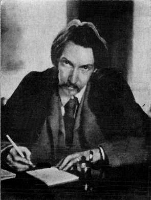Archive for February 2021
a-moral
In his essay ‘A Gossip on Romance’ (1882, then in Memories and Portraits, 1887), Stevenson writes
There is a vast deal in life and letters both which is not immoral, but simply a-moral.
The word ‘a-moral’ would have struck contemporary readers as something new.
- It is the earliest citation in the OED
- It is apparently not a borrowing from French: in Trésor de la Langue Francaise the earliest use of amoral is attributed to the critic and dramatist Jules Lemaître in 1885, again in contrast with ‘immoral’: ‘[If we consider the world devoid of the idea of merit], S’il n’est pas immoral, il faut qu’il soit amoral‘ (italics in the original) (Les Contemporains, Première série, undated (the Preface says the articles were written in 1884 and 1885), 67).
The word unmoral had previously been used with the same meaning. The OED entry confuses matters by giving one definition for it: ‘Not moral; having no moral sense or standards, immoral; unconcerned with morality’, where they would have done better to distinguish two: ‘1. Not moral; having no moral sense or standards, immoral’ and ‘2. unconcerned with morality’. From the citations, the first use of the word in this second sense is c. 1840–50. So the concept was in the air but expressed by the ambiguous term unmoral.
It was clearly new in the 1880s, as both Stevenson and Lemaître use it in a context that brings out its meaning, and they additionally draw attention to it by the hyphen after the prefix and the use of italics.
However, Stevenson seems to have been preceded in the use of the word by a few years. Advanced Google Book Search reveals an earlier use of amoral in an article in the Quarterly Review for 1874 ‘Primitive Man: Tyler and Lubbock’, which I have found referred to in the Pall-Mall Budget for 31 July 1874, p. 13: ‘[There exists no evidence] for the evolution of a moral state from a pre-existing brutal and amoral (sic) condition of mankind’ (says the PMB reviewer quoting the article in the QR and pointing out the unusual word by the use of sic). The PMB reviewer says that the story of the Fall refers to ‘such an evolution from an “amoral” state of innocence to a moral knowledge of good and evil’ but adds that the important point is that the ‘scruples of savages’ are not ‘real morality’ ‘but rather morality in the act of being evolved out of something “amoral” (we thank the reviewer for that word)’. This shows the coining of the word in the QR in 1874, where it is used of a society ‘without moral standards’ and given a negative connotation in the phrase ‘brutal and amoral’. The PMB reviewer goes on to use it to refer to a society in a state either of Edenic innocence or of savagery, where in the second case amoral again designates a more primitive, less evolved state.
Stevenson therefore did not invent the concept (as it was around in the use of unmoral since c. 1850), nor did he invent the form (which seems to date from 1874), but his innovation is the use of amoral in a neutral and ethical sense: not of primitive and inferior individuals and societies but of morally-neutral choices and actions, since then the dominant use.

